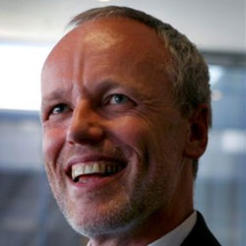Charities are becoming “extraordinarily disconnected” from donors and supporters who do not understand the work they do, Ian Theodoreson, chair of the Charity Finance Group and chief financial officer of the Church of England, said last week.
He said this is partly because charities have downplayed the cost of their work in order to raise more in donations.
Theodoreson was speaking at the launch of Managing in the New Normal, a report into how the sector is coping with the economic environment, launched by the CFG together with the Institute of Fundraising and PwC. The report suggested that a fifth of charities felt their fundraising had been damaged by negative headlines.
He said most charity supporters did not understand the wide range of activities carried out by charities, particularly larger organisations.
“One thing that has struck me is how extraordinarily disconnected what we do is from what the average man on the street thinks we do,” he said. “Our communication gap is enormous.”
Speaking to Civil Society News after the event, he said charities had not helped themselves by “absurdly claiming they spend diddly-squat on administration or that all the money raised goes to the frontline” in their communications with donors.
“The public and media perception of the charity sector is disconnected from the realities of the work charities do and the challenges and complexities they face,” he said. “Their understanding of charity is of the volunteer working in a charity shop or the runner in the London Marathon.
“They have only the vaguest notion about what the product is at the other end and how it is arrived at.
“They don't for instance understand that a significant amount of the service is provided through people who need to be paid for doing a professional and challenging job.”
As a result, he said, charities faced “shock headlines” suggesting that donations were being wasted on paying staff.
Theodoreson cautioned that charities faced losing the support of the public if they did not explain their work better, and called for an effort to step up communication with the public about the realities of how charities worked.
“If we aren’t going to leave great holes in the sector, we have to do something rather more significant than we have,” he said.
Sector 'extraordinarily disconnected' from public, CFG chair says
15 Apr 2014
News
Charities are becoming “extraordinarily disconnected” from donors and supporters who do not understand the work they do, Ian Theodoreson, chair of the Charity Finance Group and chief financial officer of the Church of England, said last week.









